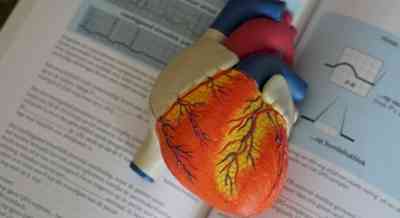Abnormalities in heart functions may raise dementia risk: Study
Structural or functional abnormalities within the heart's left atrium, with or without symptoms, may increase a person's risk of developing dementia later in life by 35 per cent, according to a new research.

New York, Aug 11 (IANS) Structural or functional abnormalities within the heart's left atrium, with or without symptoms, may increase a person's risk of developing dementia later in life by 35 per cent, according to a new research.
More than 55 million people live with dementia worldwide, and there are nearly 10 million new cases every year, according to the World Health Organization (WHO). Dementia is the loss of cognitive functioning -- thinking, remembering and reasoning -- to such an extent that it interferes with a person's daily life and activities.
The left atrium is one of four chambers of the heart and is responsible for receiving blood from the lungs and pumping it into the left ventricle, which then pumps the blood to the rest of the body. An abnormality in the structure or functioning of the left atrium, known as atrial cardiopathy, can often serve as a biomarker, or predictor, of a person's cardiac risk.
But the study, published in the 'Journal of the American Heart Association', showed that atrial cardiopathy, which is known to increase risk of stroke and atrial fibrillation, is also linked to an enhanced risk of dementia.
Dementia risk increased even among those who did not experience atrial fibrillation or stroke.
The study results highlight the need to get a better understanding of the relationship and mechanisms between a state of atrial dysfunction that may be subclinical (not presenting symptoms) and the newly uncovered association with dementia, noted researchers from Johns Hopkins University in the US.
"We found that patients who had atrial cardiopathy had a higher hazard, or rate, of dementia over time versus those who did not have atrial cardiopathy," said Michelle Johansen, Assistant Professor of neurology at the varsity's School of Medicine.
The team analysed 5,078 adults who did not have dementia when the study began.
Throughout the more than 30 years of follow-up, 763 people developed dementia, and 1,709 had atrial cardiopathy. The participants with atrial cardiopathy appeared to be 35 per cent more likely to develop dementia.
When the researchers adjusted for participants who experienced atrial fibrillation and stroke, even after accounting for other vascular risks, they still observed a respective 31 per cent and 28 per cent increase in dementia risk in patients with atrial cardiopathy.


 IANS
IANS 








